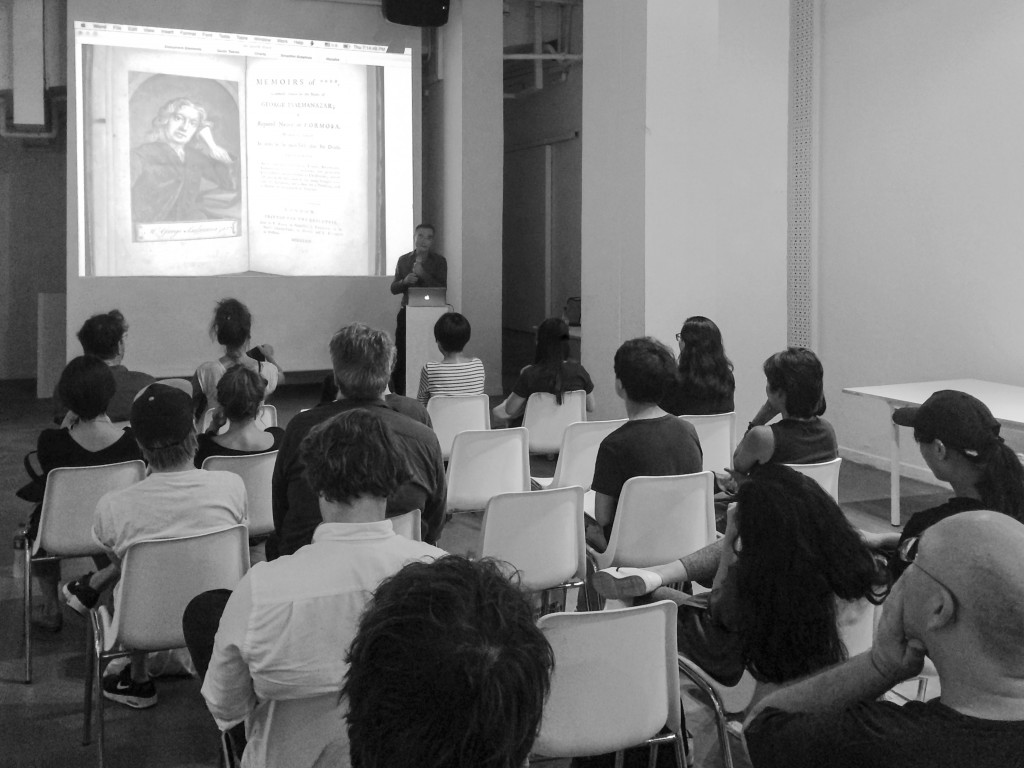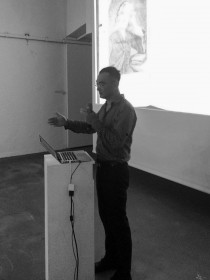Lecture by Lin Hongjohn
Curator and Chairperson of Fine Arts Dep, Taipei National University of the Arts, Taiwan
In 1703 the high society of London there appeared George Psalmanaazaar who claimed himself a Formosan to be abducted by a Christian missionary. In his book, An Historical and Geographical Description of Formosa(1704) , described Formosa to be a country of abundant resources, governed by a Japanese ruler. In this fictive book, Formosan people was almost half-naked, only wearing silver plates over their private parts. Horses, camels, and elephants were domesticated for transportation. One of the high peaks of the book was that every year Formosans sacrificed the eldest sons to their gods, and even in the second edition (1705), Formosan were exaggerated as cannibals, who ate those were sacrificed and executed. Being a celebrity of his exotic oriental identity and feted by all the literary and philosophical lions of London, Psalmanaazaar were even invited to teach Formosan in Oxford University. Psalmanaazaar was the beau monde in the celebrities of London.
Psalmanaazaar’s real identity is still unknown today, as much as in his will he still signed with the fictional Taiwanese name. In order to portray as a Formosan, he ate raw meat with various heavy spices. He even lighted candle when he slept to pass for the other that he was actually reading, for Formosans, according to his book, learned knowledge through their sleeps. For 18th century occidental world Ilha Formosa, Taiwan, represents one of the most distant country they can imagine not just geographically but symbolically as well.
Since 2008, I have been working on this fake Taiwanese under the title The Museum of George Psalmanazzare, MOGP exhibiting in Rotterdam, Manchester, Shanghai and Taipei. In the 2012 Taipei Biennial as participated artist, the project was presented in a manner much similar to that of museum. I link the secrete path between identity and the politics of fantasy, and the other, the real of the local, much as a missing part that is intrinsic to the real Taiwanese. In combining the seemingly impossible fragments of sights and sounds, to link the web of identity politics that linger between the ancient and the contemporary, the truth and falsity to capture the fleeting moment of the perverse, the primitive, the empowered to glance the phantom of history.

Thursday, October 01 – 7pm
Connecting Space Hong Kong
